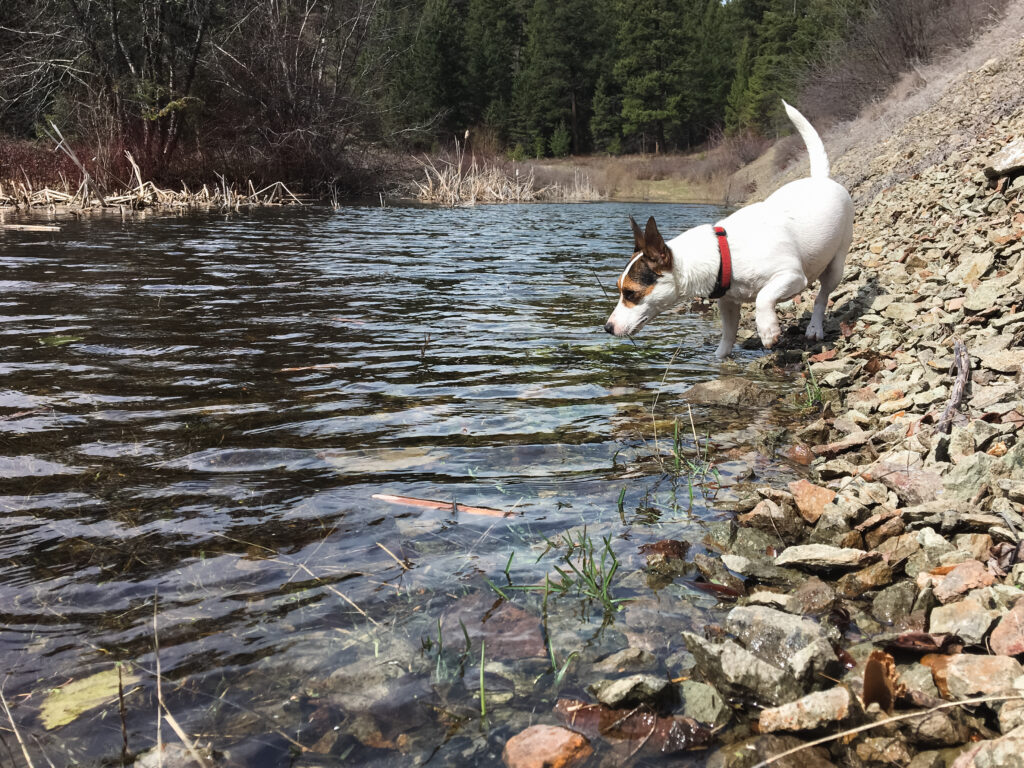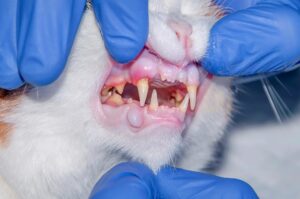Understanding leptospirosis, a potentially serious disease, is essential to protect your pet. At Chimacum Valley Veterinary Hospital, we prioritize your pet’s health, and this article will shed light on leptospirosis, its causes, risks, symptoms, diagnosis, treatment, and prevention.
What is Leptospirosis?
Leptospirosis is a bacterial infection caused by Leptospira bacteria. These spiral-shaped bacteria are commonly found in soil and water, so dogs are susceptible to infection when they come into contact with contaminated environments. It’s worth noting that leptospirosis is not only a threat to dogs but can also affect humans. The bacteria have various serovars, each potentially causing different symptoms in infected animals.
Leptospirosis Causes and Risk Factors
Leptospirosis spreads through contact with the urine of infected animals, contaminating water sources and soil. Dogs are particularly at risk when they drink from or play in these contaminated areas, especially in regions of Port Hadlock where wildlife is abundant. The bacteria can enter your dog’s body through mucous membranes or tiny cuts in their skin. In areas with a high population of wildlife, such as raccoons, skunks, or rodents, the risk of leptospirosis transmission to dogs increases significantly.
What are the Symptoms of Leptospirosis in Dogs?
Recognizing the symptoms of leptospirosis is vital for early intervention and effective treatment. In its initial stages, leptospirosis can manifest with symptoms such as:
- Fever: A fever is often one of the first signs of Leptospirosis. It occurs as the body’s immune response to fight the bacterial infection. You might notice your dog is warmer than usual, seems sluggish, or shivers as though it’s cold even in a warm environment.
- Vomiting: This is a common symptom in dogs suffering from Leptospirosis. The infection can cause an upset stomach and irritation to the gastrointestinal system, leading to vomiting. This can result in dehydration and a significant loss of appetite.
- Diarrhea: Similar to vomiting, diarrhea results from gastrointestinal upset caused by the Leptospirosis infection. It can range from mild to severe and often accompanies vomiting. Diarrhea can lead to rapid dehydration and should be addressed promptly.
- Muscle Pain: Dogs with Leptospirosis might exhibit signs of muscle pain or stiffness. This is due to the bacteria spreading through the body and causing inflammation in various tissues, including muscles. Your dog might be reluctant to move, limp, or react negatively to being touched in certain areas.
- Lethargy: Lethargy or a noticeable decrease in energy levels is a significant sign of Leptospirosis. As the disease affects your dog’s body, it can lead to an overall feeling of weakness or tiredness. Your pet might sleep more than usual, be less interested in playing, or seem indifferent to activities it usually enjoys.
However, these symptoms can be easily mistaken for other common ailments in dogs.
As the disease progresses, it can lead to more severe issues, including kidney and liver damage. If you notice any of these signs in your dog, please contact Chimacum Valley Veterinary Hospital immediately for a thorough evaluation.
Diagnosing and Treating Leptospirosis
Diagnosing leptospirosis requires a thorough physical examination, followed by a combination of blood and urine tests. Early detection is necessary to provide the most effective treatment. If your dog tests positive for leptospirosis, our experienced veterinarians will prescribe a course of antibiotics. In addition to antibiotic therapy, supportive care may be necessary to manage the symptoms and prevent complications. Timely treatment is essential in improving your dog’s chances of a full recovery.
How to Prevent Leptospirosis in Dogs
Preventing leptospirosis is much better than having to treat it. Here are some helpful precautions you can take to increase your dog’s protection and keep them healthy:
Vaccinate Your Dog for Leptospirosis: Our hospital offers the leptospirosis vaccine, which protects against the most common strains of Leptospira bacteria and needs to be given annually to maintain your dog’s protection. Talk to your vet to learn more about this vaccine and whether it is a good option for your pet.
Supervise Outdoor Activity: The great outdoors can pose some risks for your pet, including a heightened risk for leptospirosis infection. Avoid letting your dog drink from stagnant water sources, especially in areas where wildlife may be present.
Avoid Known High-Risk Areas: Your dog benefits from regular outings and walks, but take a moment to think about which areas, be they parks or nature preserves, which might be hotbeds for leptospirosis transmission.
Keep Rodents Away: Rodents can carry Leptospira bacteria from their environment. If your home or property has a rodent problem, take steps to eliminate the infestation. In addition to making your home healthier and safer for you, it also reduces the risk of leptospirosis infection for your dog.
Do You Still Have Questions About Leptospirosis?
To sum things up, having a comprehensive understanding of leptospirosis and its risk for dogs can keep your pet healthier and happier. If you reside in Port Hadlock, WA, and have any concerns about leptospirosis or your dog’s health, please do not hesitate to contact Chimacum Valley Veterinary Hospital at (360) 385-4488. Our dedicated team is here to provide expert care for your pet and ensure they lead a healthy and happy life. Stay informed, stay vigilant, and take proactive steps to protect your furry friend from this preventable disease!





